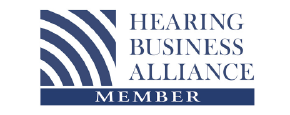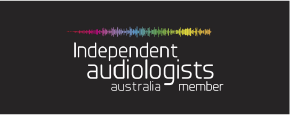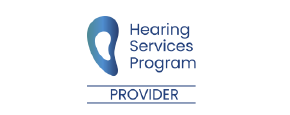Are you looking for a hearing test in Boondall?
Are you having difficulty communicating? Our expert audiologists at Hearing Help can help improve your hearing clarity. Book your consultation today and reconnect with the sounds and people you love!
Hearing Test in Boondall Brisbane
Are you looking for a Hearing Test in Boondall? Hearing Help, a reputable hearing healthcare provider for the community of Boondall, Brisbane, offers comprehensive and personalised hearing tests and services to diagnose and address hearing loss and related conditions. Their expert audiologists conduct thorough assessments to identify potential issues, including hearing loss, tinnitus, and earwax buildup. With a range of specialised services, including auditory processing assessments and cochlear implant support, Hearing Help prioritises patient-centered care and informed decision-making. By taking proactive steps towards protecting hearing health, individuals can maintain their overall well-being. A deeper understanding of the hearing test process and treatment options can help individuals take control of their hearing health.
About Hearing Help
Hearing Help is a reputable hearing healthcare provider dedicated to delivering comprehensive and personalised services to individuals seeking improved hearing and ear health. With a strong presence in Boondall, Brisbane, our team of experienced audiologists and hearing specialists cater to the unique needs of the local community. Our mission is to provide professional, compassionate, and timely care, ensuring that every individual receives the attention and treatment they deserve.
Our comprehensive range of services includes hearing assessments, hearing aid fittings, and ongoing maintenance and support. We also offer specialised services such as earwax removal, tinnitus management, and cochlear implant support. Our state-of-the-art facilities are equipped with the latest technology, enabling our team to deliver accurate diagnoses and effective treatment plans. At Hearing Help, we prioritse patient-centered care, taking the time to listen to concerns, answer questions, and address any uncertainties. By doing so, we empower individuals to make informed decisions about their hearing health and well-being.
Why Choose Hearing Help?

Hearing Help is an excellent choice for hearing services as they provide extensive assistance to the community in Newport and surrounding areas. Their services include hearing tests for adults and children, tinnitus assessments and treatment, auditory processing assessments, ear plugs, micro suction ear wax removal, CASA aviation and workplace assessments, and hearing aid fittings for adults. Furthermore, they are accredited under the Hearing Services Program and the Department of Veterans Affairs, ensuring that eligible individuals can receive fully subsidised hearing assessments and hearing aids.
Importance of hearing health and regular hearing tests
Maintaining good hearing health is crucial for overall well-being, and regular hearing tests play a vital role in achieving this. Hearing loss can be a gradual process, and it may go unnoticed until it’s too late. If left untreated, hearing loss can lead to social isolation, depression, and even cognitive decline. Regular hearing tests can help detect any issues early on, allowing for prompt treatment and prevention of further damage. Moreover, hearing tests can also identify other underlying health conditions, such as earwax buildup, infections, or tumors. By prioritising hearing health and scheduling regular hearing tests, individuals can take proactive steps towards protecting their hearing and overall health.
What is a Hearing Test?
A comprehensive audiological evaluation, commonly referred to as a hearing test, is a thorough examination of an individual’s hearing capabilities, designed to assess the sensitivity, clarity, and range of sounds that can be detected by the ear. This evaluation is typically conducted by an audiologist or a hearing specialist in a controlled environment, such as a soundproof room. The primary goal of a hearing test is to identify any potential hearing problems, such as hearing loss, tinnitus, or earwax buildup, and to determine the underlying cause of these issues.
During a hearing test, the audiologist will use specialised equipment to present a range of sounds to the individual, including tones, speech, and other auditory stimuli. The individual’s responses to these sounds are then recorded and analysed to create a comprehensive picture of their hearing abilities. The results of the hearing test are used to develop a personalised treatment plan, which may include recommendations for hearing aids, auditory therapy, or other interventions. By identifying hearing problems early, individuals can take proactive steps to protect their hearing and improve their overall quality of life.
Types of Hearing Tests
In the field of audiology, various types of hearing tests are employed to assess different aspects of an individual’s hearing, including pure tone testing, speech audiometry, and middle ear function testing. Pure tone testing is used to determine the softest sounds an individual can hear at various frequencies, providing a comprehensive picture of their hearing threshold. This test is typically conducted using an audiometer, which produces pure tones of different frequencies and intensities.
Speech audiometry, on the other hand, assesses an individual’s ability to perceive and repeat spoken words in a quiet environment. This test is designed to evaluate the individual’s auditory processing skills, such as speech recognition and comprehension. Middle ear function testing is used to evaluate the movement and reflexes of the eardrum and middle ear bones. The results of these tests provide valuable information to audiologists, helping them diagnose and manage hearing disorders. By administering a combination of these tests, audiologists can develop a comprehensive understanding of an individual’s hearing abilities and identify potential hearing problems.
Preparing for Your Hearing Test
As you prepare for your hearing test, it’s essential to understand what to expect from the process. From arrival to completion, a typical hearing test involves a series of steps designed to assess your hearing health, and being aware of these steps can help you feel more comfortable and prepared. In this section, we will outline the process, provide an overview of the typical duration of a hearing test, and offer practical tips for preparing for your appointment.
What to Expect
Typically, your hearing specialist will begin by asking about your medical history and assessing your overall ear health prior to conducting the hearing test. This is an essential step in understanding any potential factors that may be contributing to your hearing concerns. Be prepared to discuss your medical history, including any previous ear surgeries, infections, or conditions that may affect your hearing.
It is also important to inform your hearing specialist about any medications you are currently taking, as some medications can impact hearing. Additionally, be prepared to discuss your lifestyle and daily habits, such as exposure to loud noises or use of ear protection. This information will help your hearing specialist tailor the test to your specific needs and ensure accurate results.
During this initial assessment, your hearing specialist will also examine your ears to check for any visible signs of earwax, infections, or other conditions that may require attention prior to the hearing test. This thorough preparation ensures that your hearing test is conducted accurately and effectively.
Description of the process from arrival to completion
Upon arrival at the Hearing Clinic, you will be greeted by the reception staff, who will ask you to complete any necessary paperwork and then direct you to the waiting area to await your appointment. To ensure accurate results, we ask that you arrive 15 minutes prior to your scheduled appointment time to complete any necessary forms and questionnaires.
In the waiting area, our audiologists will introduce themselves and explain the testing process in detail, answering any questions you may have. We will then proceed to the testing suite, where state-of-the-art equipment and internationally recognised assessment methods will be used to evaluate your hearing. This comprehensive evaluation includes an otoscopy examination, tympanometry, and various audiometric assessments to determine the degree and type of any hearing loss. Our experienced audiologists will then interpret the results and provide personalised recommendations for your hearing needs. This collaborative approach ensures that we address any concerns and provide optimal solutions for your hearing care.
Duration of a typical hearing test
The average hearing test at our Hearing Clinic in Newport takes approximately 30-60 minutes to complete, depending on the complexity of the assessment and individual requirements. This duration allows our experienced audiologists to conduct a comprehensive evaluation of your hearing, including a thorough medical history, visual examination of the ear canal, and a series of hearing assessments.
The hearing test itself typically involves a combination of pure-tone audiometry, speech audiometry, and tympanometry. Pure-tone audiometry assesses your ability to hear different frequencies, while speech audiometry evaluates your ability to understand speech in various environments. Tympanometry examines the movement of the eardrum and reflexes of the middle ear muscles.
Our audiologists will also take the time to discuss your results with you, explain any hearing losses or abnormalities, and provide recommendations for further testing or treatment if needed. We understand that every individual’s hearing needs are unique, and we strive to provide personalised care and attention to ensure an accurate and comprehensive assessment. By allocating sufficient time for each hearing test, we can ensure that you receive the best possible care and attention.
Tips for preparing for a hearing test
Prior to your hearing test, taking a few simple steps to prepare can help ensure an accurate and comprehensive assessment of your hearing. To start, avoid exposure to loud noises for at least 24 hours before your test. Additionally, try to avoid middle ear problems by avoiding activities that can cause Eustachian tube dysfunction, such as scuba diving or travel by air.
If you have excessive earwax, consider consulting an audiologist before the test to have it removed. Furthermore, list all medications, your medical history, and details about any previous hearing-related issues or concerns, to share with the audiologist. Bring a friend or family member for support during and after the test if needed. Also, write down any questions or concerns to discuss during the appointment.
We encourage you to ask questions throughout the process to ensure you are fully informed. If you need hearing aids, be prepared to discuss your budget and any preferences for features or brands. Taking time to prepare will make the process less challenging and help you get the most accurate assessment of your hearing needs. Our team is here to support you throughout the entire process.
The Hearing Test Procedure
The hearing test procedure at our hearing clinic begins with an initial consultation, where you will meet with one of our experienced audiologists to discuss your symptoms and concerns. During this consultation, your audiologist will also take a comprehensive medical history to identify any underlying conditions that may be contributing to your hearing difficulties. This thorough understanding of your individual needs will inform the selection of tests to be conducted, ensuring a personalised assessment of your hearing health.
Initial Consultation
During an initial consultation at our hearing clinic, a comprehensive hearing test procedure is conducted to assess an individual’s hearing capacity and identify any potential hearing-related issues. This procedure typically begins with an otoscopy examination, where our trained audiologists visually inspect the ear canal and eardrum to detect any visible abnormalities or obstructions that may affect hearing.
Following the otoscopy, we conduct a series of hearing assessments, including pure tone audiometry and speech audiometry tests. Pure tone audiometry involves playing sounds at varying frequencies and intensities to determine the individual’s hearing threshold, while speech audiometry evaluates their ability to comprehend speech in noise. These tests are conducted in a soundproof room to ensure accurate results. Our state-of-the-art equipment and experienced audiologists ensure that the hearing test procedure is thorough, efficient, and comfortable for the individual being tested. By conducting these tests, we can gather valuable information about an individual’s hearing and provide informed guidance on the best course of action to address any identified issues.
Discussion with an audiologist about symptoms and medical history
As part of the comprehensive hearing test procedure at our hearing clinic, a thorough discussion with one of our experienced audiologists about the individual’s symptoms and medical history is conducted to gather a more complete understanding of their hearing health. This discussion is a crucial step in identifying potential causes of hearing loss or other ear-related issues. Our audiologists will ask a series of questions to gather information about the individual’s symptoms, such as when they first noticed a change in their hearing, the severity of their symptoms, and any factors that may exacerbate or alleviate them.
We will also review the individual’s medical history to identify any conditions that may be contributing to their hearing loss, such as ear infections, head trauma, or exposure to loud noises. Additionally, we will ask about any medications or treatments the individual is currently undergoing, as these can also impact hearing health. By gathering this information, our audiologists can develop a personalised plan for the individual’s hearing test and subsequent treatment, if necessary. This comprehensive approach ensures that we provide the most accurate and effective care for our patients.
Conducting the Tests
Following the thorough discussion with our audiologist, a series of objective and subjective tests are carefully conducted to assess the individual’s hearing thresholds, identify potential hearing losses, and determine the most effective course of treatment.
The objective tests utilise specialised equipment to evaluate hearing sensitivity and middle ear function, including tympanometry to assess eardrum and middle ear reflexes. Acoustic reflex measures identify the stapedial muscle’s response to varying intensity levels. Pure tone testing, a fundamental part of the assessment, entails introducing tones at decreasing frequencies to determine the subject’s lowest audible threshold. Contras-tympanic evaluation evaluates the middle ear muscle contractions.
In concert, these objective evaluations may detect hearing impairments which include conductive and mixed hear losses. Bone Conduction testing is implemented whenever initial results indicate. Finally results are compared, correlated using a cross checks clinical measures to ensure efficacy then summarised in a format so easily understood by participants when fed back.
Post-Test Consultation
Following the completion of the hearing test, a comprehensive post-test consultation is conducted to discuss the results and their implications. During this consultation, the audiologist will outline treatment options and recommendations tailored to the individual’s specific needs, addressing any concerns or questions they may have. The consultation also provides an opportunity to schedule follow-up appointments, ensuring seamless continuity of care and support.
Treatment Options and Recommendations
Recommendations for treatment or management of hearing concerns are tailored to each individual’s specific needs, taking into account the results of their comprehensive hearing assessment and personal circumstances. Our experienced audiologists will discuss the most suitable options with the individual, which may include hearing aids, assistive listening devices, or alternative communication strategies. We consider factors such as lifestyle, budget, and personal preferences when making recommendations.
Treatment options may involve hearing aid fitting, where we help individuals select and adjust to wearing hearing aids. We also provide guidance on how to use and maintain these devices. In some cases, we may recommend assistive listening devices, such as phone amplifiers or loop systems, to enhance communication in specific situations. Additionally, we offer auditory training programs to help individuals develop strategies for better communication and speech understanding. Our goal is to empower individuals with the knowledge and tools necessary to effectively manage their hearing concerns and improve their overall quality of life.
Scheduling Follow-Up Appointments
As part of our comprehensive approach to hearing care, we schedule follow-up appointments to review the effectiveness of treatment plans and make any necessary adjustments to ensure optimal outcomes. These appointments are crucial in determining whether the recommended treatment is meeting the individual’s needs and addressing their specific hearing concerns. During the follow-up appointment, our audiologist will assess the individual’s progress, address any concerns or questions they may have, and make any necessary adjustments to the treatment plan.
The timing of follow-up appointments varies depending on the individual’s specific needs and treatment plan. Some individuals may require follow-up appointments several weeks or months after the initial consultation, while others may require more frequent check-ins. Our goal is to ensure that each individual receives the best possible outcome from their treatment, and we believe that regular follow-up appointments play a critical role in achieving this goal. By scheduling follow-up appointments, we can ensure that our patients receive ongoing support and care to optimise their hearing health.
Book an appointment
Ready to hear the world more clearly? Contact Hearing Help today to schedule your personalised hearing consultation. Call us or visit our website to find your path to better hearing. We’re here to help you connect with every sound life has to offer.
Address: Newport Marketplace Shopping Centre
Tenancy M01, 10 Lakeview Promenade, Newport QLD 4020
(located inside Newport Physio rooms)
Phone: 07 3214 3641
Email: hello@hearinghelpredcliffe.com.au










